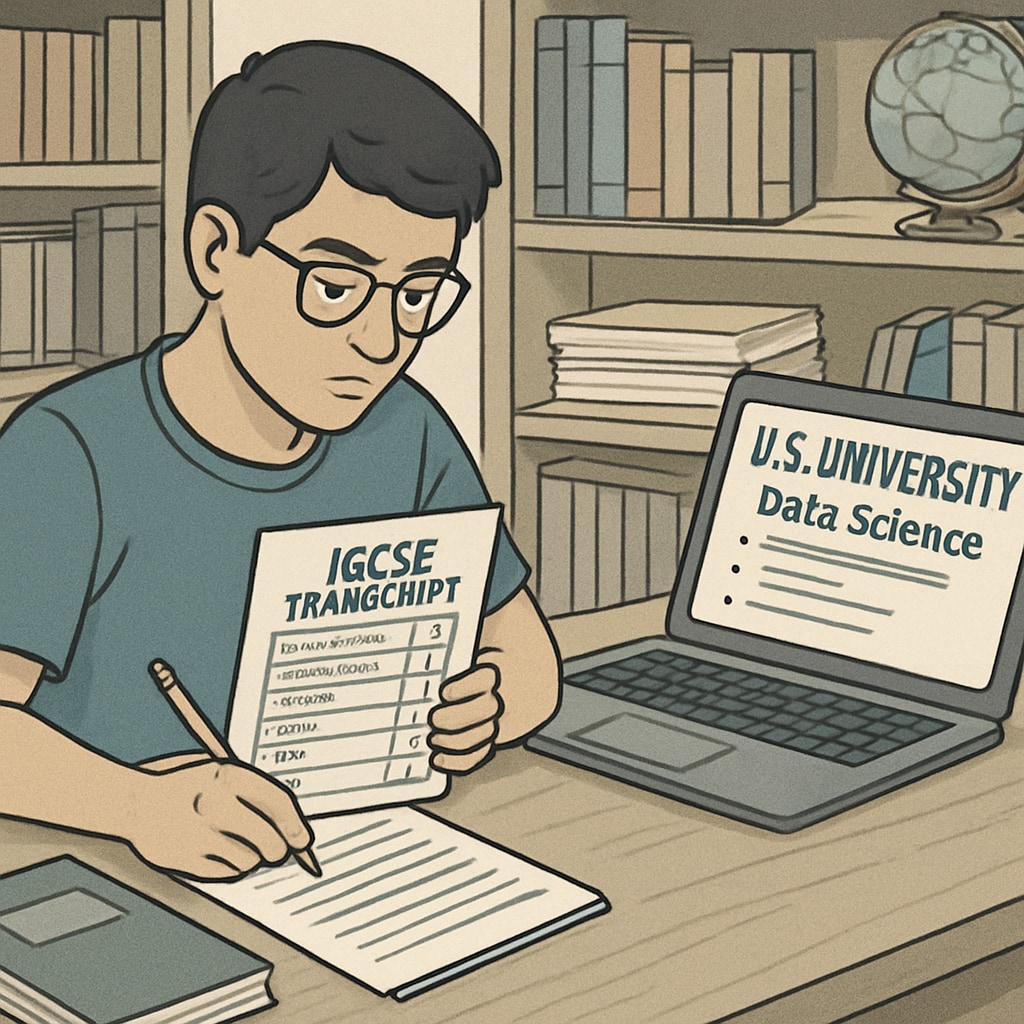Applying to a U.S. university for a bachelor’s degree in data science can be an exciting yet complex journey for international students. Understanding the recognition of IGCSE qualifications, standardized test requirements, and the overall application process is critical for success. This guide provides a detailed roadmap to help aspiring data scientists navigate the admissions process with confidence.
Understanding IGCSE Recognition for U.S. Universities
The International General Certificate of Secondary Education (IGCSE) is a widely recognized qualification in many countries, and its acceptance by U.S. universities varies depending on the institution. While most universities acknowledge the IGCSE as a valid high school credential, students may need to supplement it with additional qualifications, such as A-Levels, International Baccalaureate (IB), or Advanced Placement (AP) courses.
For data science programs, universities often expect students to demonstrate strong foundations in mathematics and science. Subjects like Further Mathematics, Computer Science, and Physics in IGCSE or equivalent qualifications can enhance your application. It’s essential to review the specific requirements of each university to confirm whether your academic background meets their standards.

Standardized Test Requirements for Data Science Applications
Standardized tests, such as the SAT or ACT, are an integral part of the U.S. college application process. For data science programs, strong quantitative scores can significantly boost your application. The math section of these exams is particularly important, as it demonstrates your analytical and problem-solving skills—key attributes for success in data science.
In addition to the SAT/ACT, some universities may require or recommend subject-specific tests, such as SAT Subject Tests in Math Level 2 or Physics. While these are becoming less common, it’s worth checking each university’s policy. For non-native English speakers, language proficiency tests like the TOEFL or IELTS are typically mandatory.
- SAT/ACT: Focus on achieving high scores in the math and evidence-based reading sections.
- TOEFL/IELTS: Ensure your scores meet the minimum requirements, often around 80-100 (TOEFL) or 6.5-7.0 (IELTS).
- Optional Tests: Consider taking advanced math or science exams if recommended by the university.

The Application Process: Step-by-Step
The application process for U.S. universities typically involves several components. Each step requires careful planning and attention to detail:
- Research Universities: Identify universities that offer strong data science programs. Look for factors like curriculum structure, faculty expertise, internship opportunities, and alumni outcomes.
- Prepare Academic Transcripts: Ensure your IGCSE results and any additional qualifications are translated and certified if necessary.
- Craft a Personal Statement: Highlight your passion for data science, relevant experiences, and future aspirations.
- Secure Letters of Recommendation: Request letters from teachers or mentors who can vouch for your academic and extracurricular achievements.
- Submit Test Scores: Send your SAT/ACT and TOEFL/IELTS scores directly to universities.
- Complete Financial Documentation: Demonstrate your ability to fund your education through bank statements or sponsorship letters.
- Apply for Scholarships: Explore merit-based and need-based scholarships to reduce tuition costs.
- Track Deadlines: Stay organized by creating a timeline for application submissions, interviews, and decision notifications.
Challenges and How to Overcome Them
International students face unique challenges when applying to U.S. universities, including navigating visa requirements, adapting to cultural differences, and managing financial constraints. Here are some tips to help overcome these obstacles:
- Visa Applications: Start your F-1 visa process early and prepare all required documentation.
- Culture Shock: Engage with international student communities and participate in orientation programs to ease your transition.
- Financial Planning: Look into part-time work opportunities, assistantships, and external scholarships to manage expenses.
By addressing these challenges proactively, you can focus on achieving academic and personal success in your data science journey.
In conclusion, pursuing a data science degree in the U.S. as an international student requires careful preparation and a clear understanding of the admissions process. By meeting the IGCSE recognition standards, excelling in standardized tests, and following a structured application plan, you can set yourself on the path to a rewarding career in data science.
Note: Always refer to official university websites and trusted resources for the most accurate and up-to-date information.


